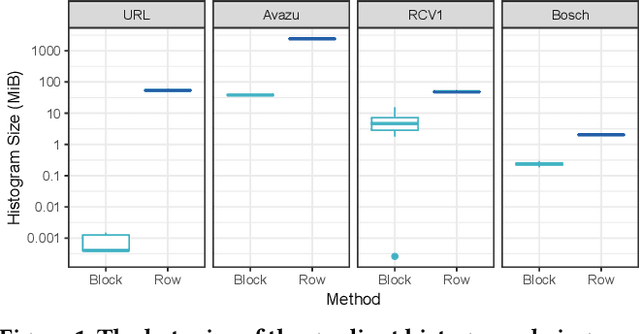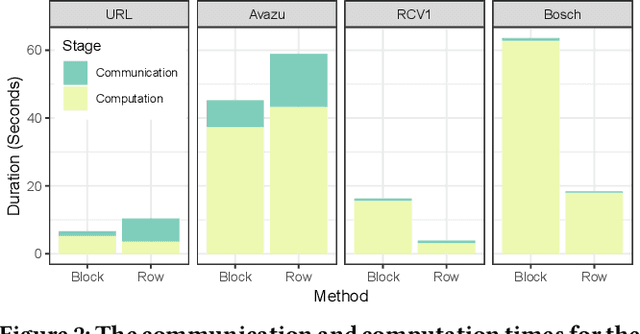Block-distributed Gradient Boosted Trees
Paper and Code
May 28, 2019

The Gradient Boosted Tree (GBT) algorithm is one of the most popular machine learning algorithms used in production, for tasks that include Click-Through Rate (CTR) prediction and learning-to-rank. To deal with the massive datasets available today, many distributed GBT methods have been proposed. However, they all assume a row-distributed dataset, addressing scalability only with respect to the number of data points and not the number of features, and increasing communication cost for high-dimensional data. In order to allow for scalability across both the data point and feature dimensions, and reduce communication cost, we propose block-distributed GBTs. We achieve communication efficiency by making full use of the data sparsity and adapting the Quickscorer algorithm to the block-distributed setting. We evaluate our approach using datasets with millions of features, and demonstrate that we are able to achieve multiple orders of magnitude reduction in communication cost for sparse data, with no loss in accuracy, while providing a more scalable design. As a result, we are able to reduce the training time for high-dimensional data, and allow more cost-effective scale-out without the need for expensive network communication.
 Add to Chrome
Add to Chrome Add to Firefox
Add to Firefox Add to Edge
Add to Edge